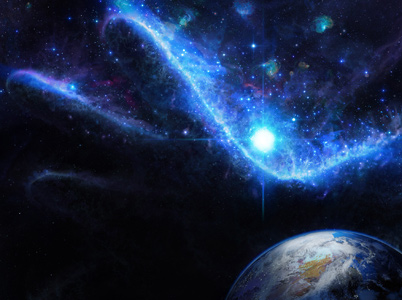The single greatest achievement of the
Autodidactic project is not its endeavor in autonomous trading. It's much more subtle than that. Autodidactic itself has become a self-sustaining and autonomous company with no customers, products, or employees.
Think about that for a moment. This is a company that will grow and generate revenue year after year completely on its own with no work done anywhere by any human being. It is completely independent to the world. It doesn't need to sell anything to anyone. It doesn't need anyone to work in the company to keep it going. It neither takes from nor gives to society. It simply exists, its members benefiting from a fully automated revenue stream that requires absolutely no human input. It is an Island, an off-the-grid company, dependent on nothing and beholden to no one.
In the past, people would dream of "living off the fat of the land" or moving to some place isolated from society to be completely free. That idea is much more metaphorical than literal today due to the near inescapable globalization and the ever-increasing scarcity of land. You can still buy a piece of land and try to live off only what you grow, but you would pretty much live at the mercy of quite literally the rest of society changing the world around you, always running away rather than truly holding your own. During the late 1800s and early 1900s, industrialists pursued this idea with a different approach by attempting to build utopias out of corporate towns, where the company both funded and owned every property in the city and quite literally the city itself (see what
Disney World was meant to be before Walt died). The problem is that these companies themselves still depended on the rest of the world as well as on their employees. When demand for
Pullman's products dropped in the panic of 1893, for example, both the company and its town fell apart. When cultures clashed and people disagreed with how Ford saw life should be,
Fordlandia crumbled before it even began. The closest thing to a success (and closest in spirit to what we later are trying to do here) may be Oppenheimer's
Los Alamos, which doubled as both a vibrant community of scientists and a place with unlimited resources dedicated to nuclear research, but that ultimately only existed for the war. The utopias were an illusion because the prosperity required ideal (or in the case of WW2, need-driven) conditions and the cooperation of the employees keeping them running.
Autodidactic completely uproots these past views of what's possible in creating a company as well as what it means to be completely free and unbounded by the rest of the world. First, it eliminates the constraints and dependencies of past examples by not having any products or customers to tie it to the outside economy and then by not having any employees on which it relies on to keep it running. Everything is automated and all revenue is generated from within on the sheer merit of the underlying AI. If you've ever read science fiction novels by Asimov or Clarke about cities or societies maintained entirely by fully autonomous AI with no human intervention, the concept is similar here in that it's been running for over 4 years now untouched, perhaps not yet to the scale of managing cities but enough to allow members of the company to focus on anything except the money making aspect. That aspect at the moment manifests as trading, which in itself embeds a degree of independence. Unlike traditional customer-serving companies, nothing anyone else does or thinks has any effect. There is no one whose decision you must win or consent you must earn. It is a modern-day version of farming, in that what we create for ourselves is done completely on our own with no reliance or ask of anyone else (or in this case, anyone at all). This cascades into a number of other effects. For one, the company no longer has to be geographically tied to any one location because there are no physical offices, retail spaces, nothing. All automation is run online and distributed around the world. The humans meanwhile can be anywhere at any time and have absolutely no impact on the operations of the company. The Island and City have become metaphorical. The independence from the rest of the world no longer requires physical isolation. This is already a step beyond the previously mentioned ideas of the past that would tie one down geographically, but we can actually go further. Not only does one no longer need to stay in any particular place, one no longer has to do anything at all to create or maintain the structure. Your freedom is in both where you want to spend your time and what you want to spend your time on. It goes all the way. It is everywhere you go and everything you do. You can continue to live a normal life in a normal city if you choose, or you can be a free spirit and travel the world (and one day the universe). That's really who this is for - the adventurer who wants to keep exploring, creating, and doing things that have never been done before. This is the ship with which such a person can set sail. It's not about changing society or affecting the masses - and by far not about replacing companies in general - but instead about the fact that we have a new kind of company that's never existed before, never could exist before, and it's exciting to imagine what could come of it.
...
[More]










